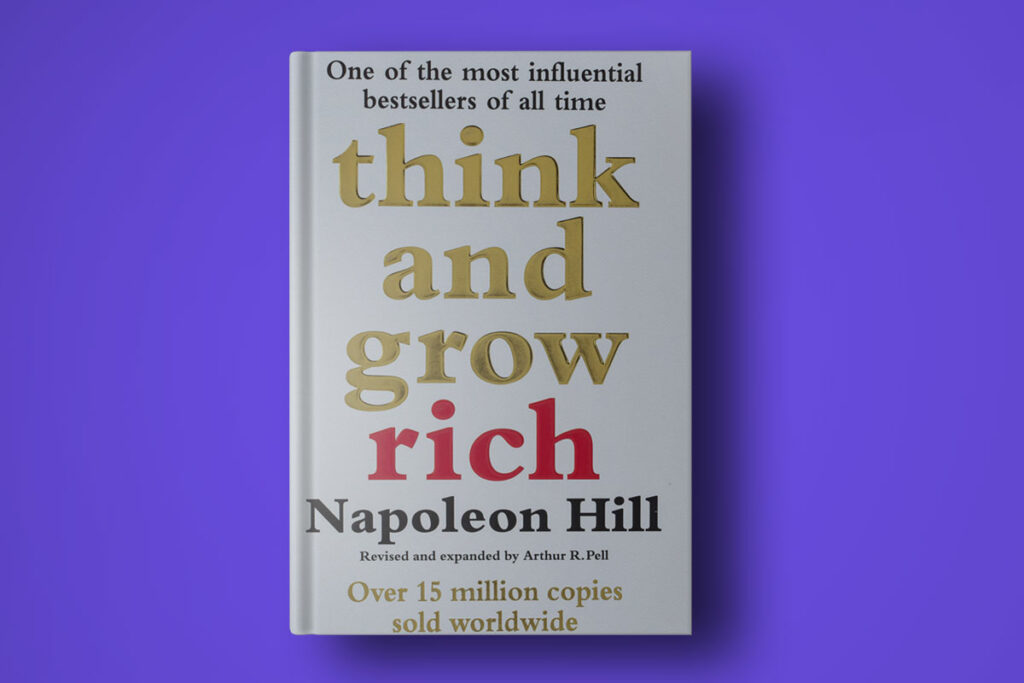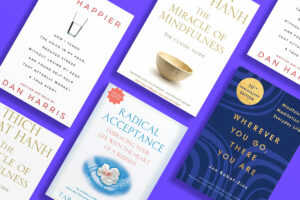
“Think and Grow Rich,” first published in 1937, remains one of the most influential self-help books of all time. Written by Napoleon Hill, the book has sold millions of copies worldwide and inspired countless individuals to pursue success and personal development. But in today’s fast-paced, technology-driven world, does “Think and Grow Rich” still hold up? This article explores the core principles of Hill’s work and examines its relevance in the modern era.
The Genesis of ‘Think and Grow Rich’
Napoleon Hill wrote “Think and Grow Rich” during the Great Depression, a time when the world was grappling with economic hardship and uncertainty. Hill’s work was commissioned by Andrew Carnegie, one of the richest men of the time, who challenged Hill to study the habits and philosophies of successful individuals. Hill spent over 20 years interviewing successful people, including Henry Ford, Thomas Edison, and Alexander Graham Bell, distilling their wisdom into the principles outlined in the book.
Core Principles of ‘Think and Grow Rich’
The book is structured around 13 principles that Hill identified as essential for achieving success. These principles are:
- Desire: A burning desire to achieve a specific goal is the starting point of all achievement.
- Faith: Belief in the attainment of desire.
- Autosuggestion: The practice of influencing the subconscious mind through repeated affirmations.
- Specialized Knowledge: Acquiring and using specialized knowledge relevant to one’s goals.
- Imagination: The ability to visualize and create plans to achieve one’s desires.
- Organized Planning: The process of translating desires into actionable plans.
- Decision: The ability to make decisions promptly and stick to them.
- Persistence: Maintaining effort and enthusiasm despite obstacles.
- The Master Mind: A group of like-minded individuals who support and encourage each other.
- The Mystery of Sex Transmutation: Channeling sexual energy into productive activities.
- The Subconscious Mind: Using the subconscious mind to influence one’s actions.
- The Brain: Understanding the brain as a broadcasting and receiving station for thought.
- The Sixth Sense: Developing a “sixth sense” to receive insights and inspiration.
Relevance of Hill’s Principles Today
Desire and Goal Setting
The principle of desire as the starting point of achievement remains highly relevant. Modern psychology and self-help literature continue to emphasize the importance of setting clear, specific goals. The concept of having a burning desire aligns with the idea of intrinsic motivation, which is crucial for long-term success.
Faith and Belief
The importance of faith and belief in achieving success is supported by contemporary research in psychology. Positive thinking and self-efficacy—believing in one’s ability to succeed—are key components of achieving personal and professional goals. Hill’s emphasis on faith can be seen as a precursor to the modern concept of growth mindset, which promotes the belief that abilities can be developed through dedication and hard work.
Autosuggestion and Affirmations
Autosuggestion, or the practice of repeated affirmations, is a technique that has stood the test of time. Today, many people use affirmations to reprogram their subconscious minds and maintain a positive outlook. This principle is echoed in modern cognitive-behavioral therapy (CBT), which teaches individuals to challenge and change negative thought patterns.
Specialized Knowledge
The value of specialized knowledge is more relevant than ever in today’s information age. With the rapid pace of technological advancement, staying updated with specialized knowledge and continuously learning new skills is crucial for career success. Online learning platforms and professional development courses make it easier to acquire and apply specialized knowledge.
Imagination and Creativity
Imagination and creativity are essential in problem-solving and innovation. Hill’s principle of imagination resonates with modern approaches to creative thinking and innovation. Techniques such as brainstorming, mind mapping, and design thinking encourage individuals to think outside the box and generate new ideas.
Organized Planning and Execution
Organized planning is critical for turning goals into reality. Modern project management methodologies, such as Agile and Scrum, emphasize the importance of structured planning and iterative progress. Hill’s focus on organized planning is mirrored in contemporary practices that prioritize planning, execution, and continuous improvement.
Decision Making
The ability to make decisions promptly and confidently is a timeless trait of successful individuals. Decision-making skills are essential in both personal and professional contexts. Modern decision-making frameworks, such as the OODA loop (Observe, Orient, Decide, Act), support Hill’s principle by providing structured approaches to making informed decisions.
Persistence and Resilience
Persistence is a key determinant of success, as setbacks and failures are inevitable. Hill’s emphasis on persistence aligns with modern concepts of resilience and grit. Angela Duckworth’s research on grit highlights the importance of passion and perseverance in achieving long-term goals, reinforcing Hill’s principle.
Master Mind Groups
The concept of the Master Mind—a group of supportive and like-minded individuals—remains relevant. Today, mastermind groups, networking events, and professional associations provide platforms for collaboration, support, and idea exchange. The power of collective intelligence and accountability is widely recognized in modern business and personal development circles.
The Mystery of Sex Transmutation
Hill’s principle of sex transmutation is more controversial and less discussed in modern self-help literature. However, the underlying idea of channeling energy and focus into productive endeavors can be seen in practices such as mindfulness and energy management. While the terminology may have evolved, the concept of directing one’s energy towards meaningful goals persists.
The Subconscious Mind and Brain Function
Understanding the role of the subconscious mind and brain function in shaping behavior and thought processes is a principle supported by neuroscience. Techniques such as visualization, meditation, and neuro-linguistic programming (NLP) are modern methods of harnessing the power of the subconscious mind to achieve success.
The Sixth Sense
The idea of developing a “sixth sense” or intuition is recognized in modern psychology as well. Intuition can play a significant role in decision-making and problem-solving. Developing this sense involves honing one’s ability to recognize patterns and make connections that are not immediately apparent.
Criticisms and Limitations
While “Think and Grow Rich” has inspired many, it is not without its criticisms and limitations. Some of the critiques include:
- Lack of Scientific Rigor: Hill’s principles are based on anecdotal evidence rather than empirical research. Modern readers may seek more scientifically validated approaches to personal development.
- Overemphasis on Positive Thinking: While positive thinking is important, it must be balanced with realistic planning and action. Blind optimism can lead to unrealistic expectations and disappointment.
- Cultural and Gender Bias: The book reflects the social norms of its time, which can feel outdated to contemporary readers. The examples and language used may not resonate with today’s diverse audience.
- Simplification of Complex Issues: Hill’s principles sometimes oversimplify the complexities of achieving success. Factors such as systemic barriers, economic conditions, and personal circumstances play a significant role in one’s ability to succeed.
Modern Applications and Adaptations
Despite its limitations, the core principles of “Think and Grow Rich” can be adapted and applied in modern contexts. Here are some ways to integrate Hill’s teachings into today’s world:
- Goal Setting Workshops: Incorporate Hill’s principles of desire and organized planning into goal-setting workshops and seminars. These workshops can provide practical tools and techniques for setting and achieving goals.
- Mindfulness and Meditation Practices: Use modern mindfulness and meditation practices to harness the power of the subconscious mind and develop intuition. Techniques such as guided visualization and affirmations can enhance focus and clarity.
- Professional Networking: Leverage modern networking platforms, such as LinkedIn, to build a Master Mind group. Online communities and professional associations can provide support, mentorship, and collaboration opportunities.
- Continuous Learning: Emphasize the importance of specialized knowledge by encouraging continuous learning and professional development. Online courses, certifications, and workshops can help individuals stay updated with industry trends and advancements.
- Resilience Training: Incorporate resilience training programs that focus on developing persistence, grit, and a growth mindset. These programs can help individuals navigate challenges and maintain motivation.
Bestselling Books Inspired by ‘Think and Grow Rich’
Several modern self-help and personal development books have been inspired by the principles outlined in “Think and Grow Rich.” Here are a few notable examples:
- “The 7 Habits of Highly Effective People” by Stephen R. Covey: This book expands on Hill’s principles by offering practical advice on personal and professional effectiveness. Covey’s emphasis on proactive behavior and continuous improvement aligns with Hill’s teachings.
- “Atomic Habits” by James Clear: Clear’s book focuses on the power of small, incremental changes to achieve significant results. The principles of habit formation and consistency resonate with Hill’s emphasis on persistence and organized planning.
- “Mindset” by Carol S. Dweck: Dweck’s research on the growth mindset complements Hill’s principle of faith and belief. Her work highlights the importance of believing in one’s ability to learn and grow through effort and perseverance.
- “Grit” by Angela Duckworth: Duckworth’s exploration of grit and perseverance aligns with Hill’s emphasis on persistence. Her research provides a scientific basis for the importance of sustained effort in achieving long-term success.
- “The Power of Now” by Eckhart Tolle: Tolle’s teachings on mindfulness and presence echo Hill’s principles of harnessing the power of the subconscious mind and developing intuition. His work encourages readers to cultivate awareness and focus.
Conclusion
“Think and Grow Rich” by Napoleon Hill remains a seminal work in the field of personal development. While some of its principles may require adaptation to fit modern contexts, the core teachings on desire, faith, persistence, and
organized planning continue to resonate with readers. By integrating these timeless principles with contemporary practices and insights, individuals can harness the power of Hill’s wisdom to achieve success in today’s world.
For more insights and summaries of influential self-help and personal development books, explore BookBits Audiobook Summaries. Access concise summaries of top books to stay informed and inspired on your journey to success.


